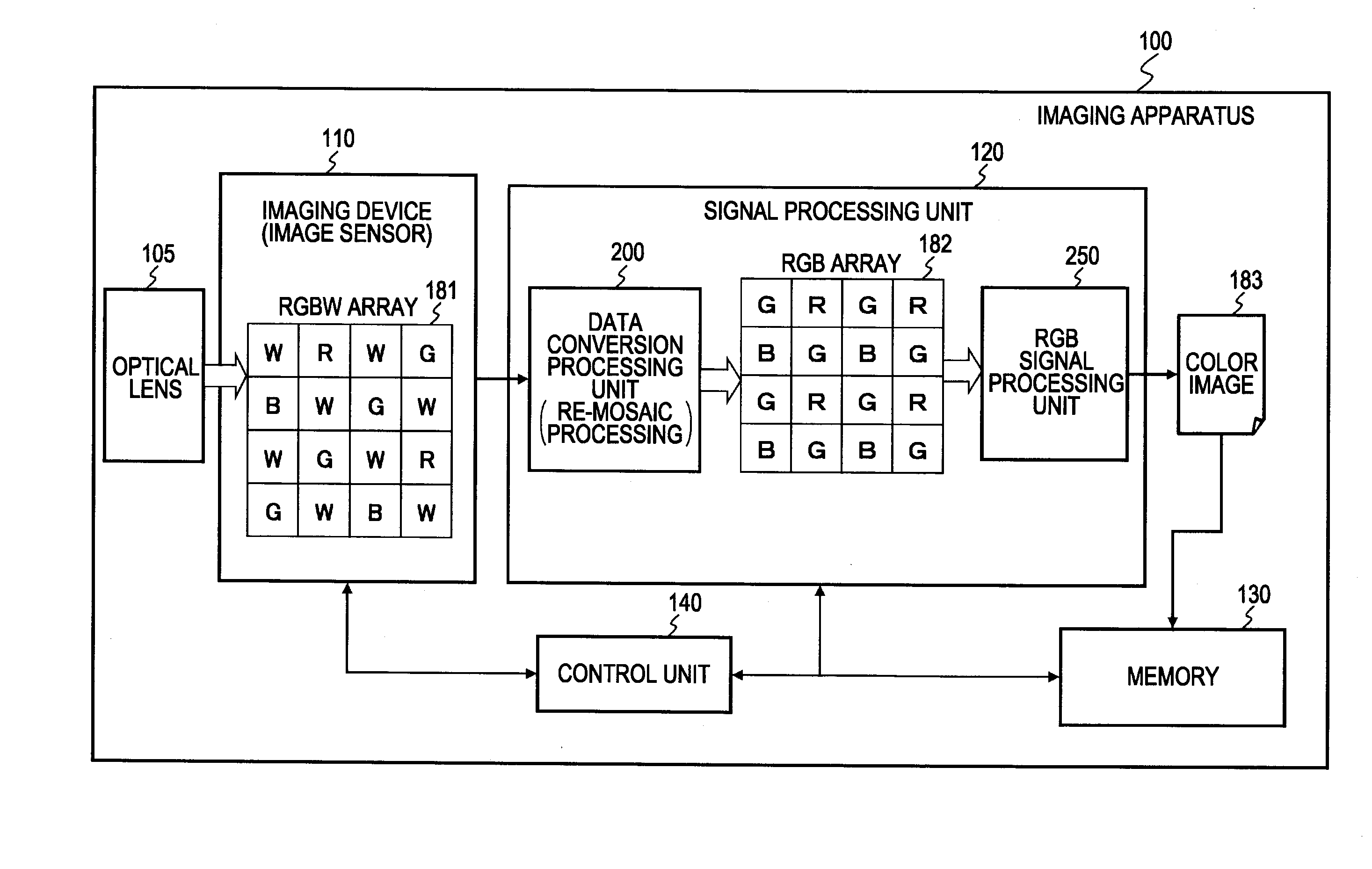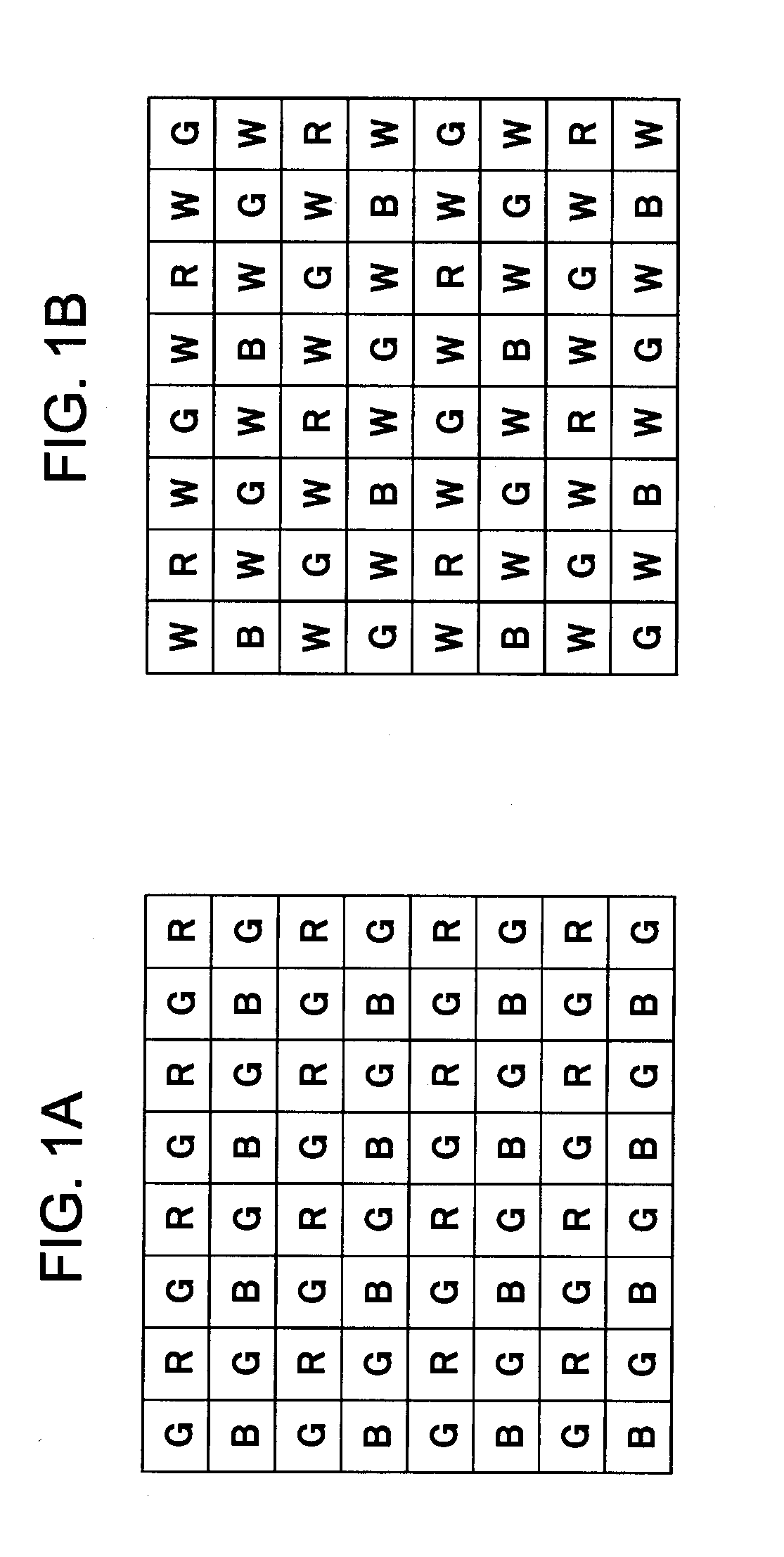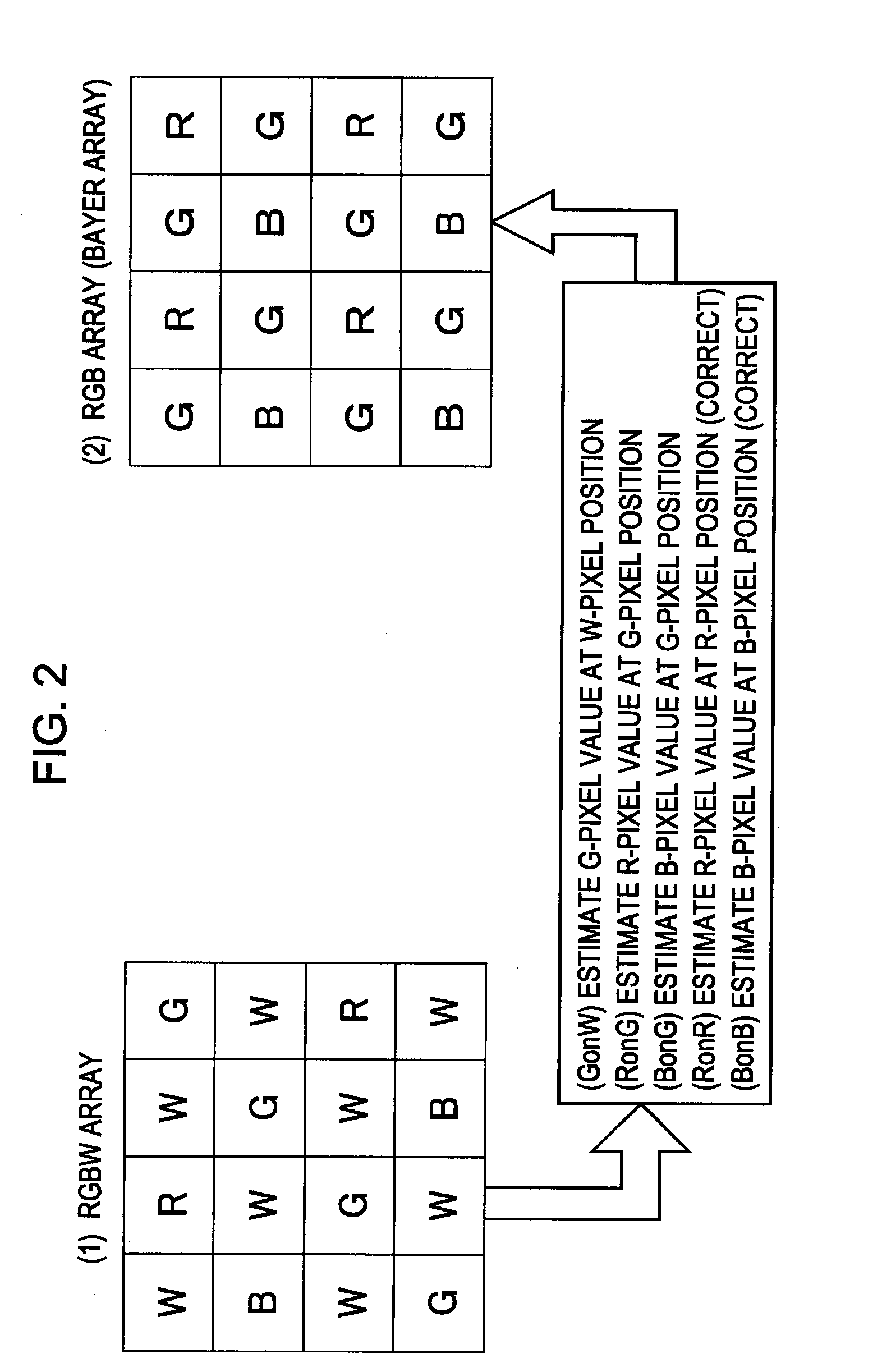Image Processing Device, Image Processing Method, and Program
a technology of image signal processing and image processing device, which is applied in the direction of image enhancement, radiation controlled devices, instruments, etc., can solve the problems of rgbw type devices, false color more readily occurring, and the amount of incident light to each of the pixels decreases and the s/n ratio increases, so as to achieve a small amount of false color or blurring
- Summary
- Abstract
- Description
- Claims
- Application Information
AI Technical Summary
Benefits of technology
Problems solved by technology
Method used
Image
Examples
Embodiment Construction
[0059]The image processing device, image processing method, and program, according to an embodiment of the present invention, will be described below with reference to the drawings. Note that description will proceed as follows.[0060]1. Overview of Processing[0061]2. Configuration Example of Imaging Apparatus and Image Processing Device, and Processing Example[0062]3. Details of Processing with Data Conversion Processing Unit[0063]3-1. About Processing with Edge Detection Unit[0064]3-2. About Processing with Blurring Correction Processing Unit[0065]3-3. About Processing with Color Correlation Re-mosaic Processing Unit (data conversion unit)[0066]4. Embodiment of Performing Demosaic Processing on RGBW Array Signals[0067]5. Advantages of Processing According to Embodiments
1. Overview of Processing
[0068]First, the overview of processing which an image processing device such as the imaging apparatus according to an embodiment of the present invention executes will be described with refe...
PUM
 Login to View More
Login to View More Abstract
Description
Claims
Application Information
 Login to View More
Login to View More - R&D
- Intellectual Property
- Life Sciences
- Materials
- Tech Scout
- Unparalleled Data Quality
- Higher Quality Content
- 60% Fewer Hallucinations
Browse by: Latest US Patents, China's latest patents, Technical Efficacy Thesaurus, Application Domain, Technology Topic, Popular Technical Reports.
© 2025 PatSnap. All rights reserved.Legal|Privacy policy|Modern Slavery Act Transparency Statement|Sitemap|About US| Contact US: help@patsnap.com



